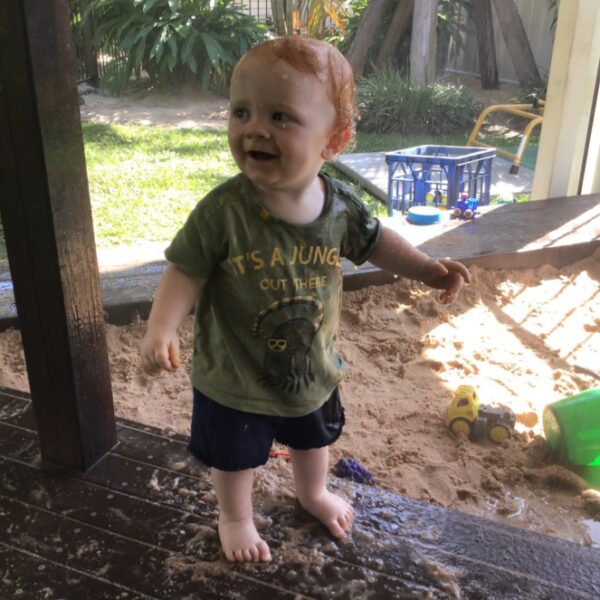Link between risky outdoor play and STEM established in new research paper

There is an intrinsic link between children’s exploration of risk and their scientific understanding, new research has shown, suggesting that exposure to risky play in natural settings facilitates experiential learning opportunities.
New research by Dr Chris Speldewinde, from Deakin University’s Centre for Research for Educational Impact (REDI) examined how educators use children’s risky play – like climbing and building campfires – to seek out opportunities to teach children about physical, chemical and biological science.
“In the realm of early childhood education, the fusion of risky play and science teaching has emerged as a potent tool for fostering children’s understanding of the natural world,” Dr Speldewinde said.
To reach his conclusion Dr Speldewinde analysed existing research in early years science education, curriculum frameworks and early childhood learning programs, and visited bush kinder sites to observe pre-schoolers in action.
During these observations researchers observed children navigating the inherent risks of natural environments, from encounters with wildlife to handling fungi, and teachers explaining to children about ecosystems and life cycles.
When children were navigating obstacles and balancing on logs, or engaging in rough and tumble play, it offered educators opportunities to impart knowledge on force and motion.
Embracing risk wasn’t just about physical skill – it was about deepening important scientific principles such as gravity.
Similarly, messy play offered a gateway to exploring chemical science.
“When children mix elements in nature, like earth and water to create mud, it offers educators opportunities to teach about material properties and transformations,” Dr Speldewinde explained.
Dr Speldewinde said that in recent years, advocates of early childhood education and care have raised concerns regarding the availability for children to access opportunities to develop resilience and self-regulation through adventures and risk-taking.
“Safety legislation in Western societies has been a contributor to planning and organising play environments and how children’s play is organised,” he said.
“Research has found that risk management guidelines are likely to restrict free play in nature, thus limiting children’s development and learning opportunities.”
“We know the benefits children derive from spending time in nature, however research in this area, particularly concerning science education opportunities, has been limited,” he added.
“Further research is needed to explore how risky play influences children’s long-term engagement with science and STEM disciplines. By fostering a deeper affinity with science in nature through risky play, educators can lay the groundwork for lifelong curiosity and learning.”
Dr Chris Speldewinde is a Research Fellow at the School of Education and the Centre for Research for Educational Impact (REDI). He conducts research on bush kinders and nature-based education in early childhood, early childhood STEM education and also works on a number of other projects focussing on primary and secondary school education.
Quotes in this piece have been used with the permission of Deakin University. Find the original piece here.
Popular

Workforce
Policy
Quality
Practice
Provider
Research
ECEC must change now, our children can’t wait for another inquiry
2025-07-02 07:47:14
by Fiona Alston

Workforce
Practice
Provider
Quality
Research
Supporting successful transitions: Big moves, big feelings
2025-06-26 11:00:30
by Fiona Alston

Practice
Quality
Research
When joyful autonomy matters so much more than curriculum outcomes
2025-06-25 09:30:36
by Contributed Content













